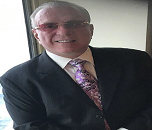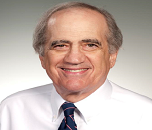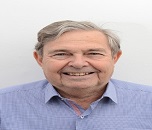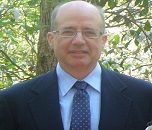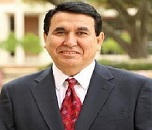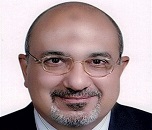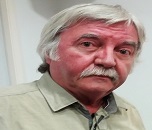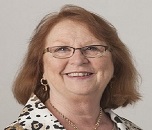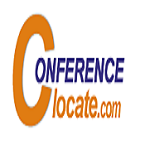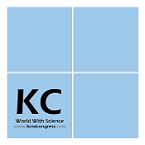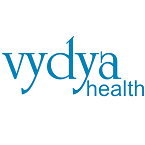Theme: “Exploring the Innovative Ideas and Remedy Solution for Addictive Disordersâ€
Addiction Congress 2023
After a series of successful editions of Addiction Congress 2022, the Conference series LLC Ltd & Organizing Committee is delighted in inviting all from all over the world to attend “12th World congress on Addictive Disorders & Addiction Therapy” to be held on July 17-18, 2023 at Zurich, Switzerland. The theme of the conference relies on “Exploring the innovative ideas and remedy solution for Addictive Disorders”. The conference will offer a global platform to all the researchers to debate gift and future challenges in varied sorts of Psychiatric and Psychology disorders & its related issues. World-leading health professionals, clinicians, scientists and researchers can show sensible, clinical and latest techniques primarily based upon wide accepted proof and can gift new and rising analysis.
We’re are very sure that Addiction Congress 2023 will be a remarkable platform for all the scientists and researchers present and imply their innovative researches, ideas and thus prompts collaboration among young researchers taking interest in the field of Psychiatry & Psychology.
We organize a series of 1000+ Global Events inclusive of 1000+ Conferences, 500+ Upcoming and Previous Symposiums and Workshops in USA, Europe & Asia with support from 1000 more scientific societies and publishes 700+ Open access Journals which contains over 50000 eminent personalities, reputed scientists as editorial board members.
Importance & Scope:
Our main goal is to create Annual Congress on Addictive Disorders & Addiction Therapy an unprecedented accomplishment with world category talks and discussion by the simplest Psychiatrists and Psychologists within the field. With an unbelievable support from recognized academicians within the field of scientific discipline and medical specialty, Public Health specialists, mental state Professionals, organization staff, researchers, scholastic researchers, business specialists, Psychiatry analysts, we have a tendency to area unit lightness several energizing learned comes as well as completely different boards, workshops, tendency assemble snacks, paper introductions, and logical sessions by likely therapists from everyplace throughout the globe that makes our gathering the simplest of alternative medical specialty conferences.
The role of addiction medicine is extremely important in the current world context. The growing prevalence of addiction in certain quarters coupled with the emergence of behavioural addictions makes the issues related to addiction necessary to be focussed upon. The magnitude of the harm due to addiction on the individual and the society is immense. Thus, deliberations are required to further discuss upon the course of research on addictions and improvement of service provision at the international level. Also, experience gained from one part of the world might be helpful in making lives better in another part. This conference, thus, hopes to bring together diverse professionals working in the field of addiction medicine from across the globe, to facilitate the process of coalescing of ideas and enrichment of expertise.
Addiction Congress 2023 Conference Highlights includes:
-
Keynote sessions by eminent and renowned researchers
-
Outstanding speaker sessions
-
Active Communications and Networking with Experts in this area
-
Abstract will be published in the respective International Journals and receive a DOI provided by Cross Ref
-
Best Speakers and Poster Presentations
-
Young Researcher Award Nominations
-
International Workshops and Symposia on latest trends
-
Certification by the International Organizing Committee
-
Group Registration benefits
|
Conference Full Name |
Conference Short Name |
Date and Venue |
|
12th World congress on Addictive Disorders & Addiction Therapy |
July 17-18, 2023 Zurich, Switzerland |
Track 1: ADDICTIVE DISORDERS
Addictive disorders, such as substance abuse and dependence, are common disorders that involve the overuse of alcohol and drugs. Addiction develops over time and is a chronic and relapsing illness. In most cases, people with addictions frequently suffer from a mental illness, such as depression, anxiety or another disorder. Addictive disorders are caused by multiple factors, including genetic vulnerability, environmental stressors, social pressures, individual personality characteristics and psychiatric problems.
From a neurological standpoint, addictive disorders arise when a substance changes the way the user’s brain feels pleasure. Addictive substances alter the brain’s ability to send and receive chemicals called neurotransmitters, which cause pleasure. The addictive substances can prevent nerves in the brain (called neurons) from receiving these neurotransmitters, meaning the drug user relies on the drug, rather than his or her natural brain chemicals, for feelings of pleasure.
Related Addiction Conferences:
Addiction Congress 2023 , Addictive Disorders Conference, Addiction Therapy Conferences, Psychiatry Conferences, Drug Addiction Congress, Addiction Conferences, Addiction Meetings, Addiction Events, Addiction Online Events, Addiction Webinars, Addiction Europe Conferences, Europe Conferences 2023
Related Associations and Societies:
Alcoholism and Substance Abuse Providers of New York State (ASANYS), American Academy of Addiction Psychiatry (AAAP), American Academy of Healthcare Providers in the Addictive Disorders, American Association for the Treatment of Opioid Dependence (AATOD), American Psychiatric Association (APA), American Society of Addiction Medicine (ASAM), European Opiate Addiction Treatment Association (EurOPAD).
Track 2: ADDICTION PSYCHIATRY AND MENTAL HEALTH
Addiction psychiatry is a medical sub specialty that focuses on the analysis, diagnosis, and treatment of individuals who suffer from one or a lot of mental illness or disorders associated with addiction. This might embody mental disorders involving legal and non-legal medicine, gambling, sex, food, and different impulse management disorders. Growing amounts of knowledge domain, like the health effects and coverings to habit, have led to advancements within the field of addiction.
Mental health includes our emotional, psychological, and social well-being. It affects how we think, feel, and act. It also helps determine how we handle stress, relate to others, and make choices. Mental health is important at every stage of life, from childhood and adolescence through adulthood. Over the course of our life, if we experience mental health problems, our thinking, mood, and behaviour could be affected. Many factors contribute to mental health problems, including Biological factors, such as genes or brain chemistry, Life experiences, such as trauma or abuse, Family history of mental health problems.
Track 3: COVID-19 AND MENTAL HEALTH
The COVID-19 pandemic has disrupted or halted critical mental health services in 93% of countries worldwide while the demand for mental health is increasing, according to a new WHO survey. The survey of 130 countries provides the first global data showing the devastating impact of COVID-19 on access to mental health services and underscores the urgent need for increased funding. The main psychological impact to date is elevated rates of stress or anxiety. But as new measures and impacts are introduced especially quarantine and its effects on many people’s usual activities, routines or livelihoods levels of loneliness, depression, harmful alcohol and drug use, and self-harm or suicidal behaviour are also expected to rise.
The pandemic is increasing demand for mental health services. Bereavement, isolation, loss of income and fear are triggering mental health conditions or exacerbating existing ones. Many people may be facing increased levels of alcohol and drug use, insomnia, and anxiety. Meanwhile, COVID-19 itself can lead to neurological and mental complications, such as delirium, agitation, and stroke. People with pre-existing mental, neurological or substance use disorders are also more vulnerable to SARS-CoV-2 infection they may stand a higher risk of severe outcomes and even death.
Track 4: COVID-19 AND ADDICTION
Substance Use Disorders (SUD), characterized by an array of mental, physical, and behavioral symptoms, a great public health concern, claim directly or indirectly the lives of millions of people every year. Alcohol consumption and illicit drug addiction cost around 1.5% of the global burden of disease and it can be as high as 5% in some nations according to recent data. The COVID-19 pandemic is having a profound effect on the health services globally. The 2019-coronavirus disease (COVID-19), undoubtedly the greatest public health catastrophe of our times, has been making universal concern throughout the world over the past few months and is throwing up several challenges for us in numerous ways.
The primary measures to contain the outbreak, like home confinement and sustained lockdown, are eventually leading to insurmountable economic burden at community level and are propelling the mass to face various unwelcome emotional reactions, psychological difficulties, behavioral changes including excessive substance abuse. On the other hand, people suffering from SUD belong to the marginalized community and are invariably more prone to contract infection during the COVID-19 pandemic. Addiction and COVID-19 fuel each other to cause a global public health threat. Resumption of deaddiction service and relaxation of accessibility of prescription drugs are needed. Psychiatrists must be prepared for imminent hike in withdrawal symptoms and addictive behaviors.
Track 5: ADDICTION THERAPY
Addiction is a multifaceted problem, but one that can be treated effectively. Addiction therapy methodologies and related researches help addicted individuals stopping compulsive drug seeking and use. Medications can be an important part of treatment to address drug abuse or the mental health aspects underlying substance use. Counseling and behavioral therapies are highly utilized and the best available treatment options for drug abuse. Addiction treatment and enhancing skills of individuals involved in addiction therapy and research to regulate patient’s emotions to enhance readiness to stop addiction and turn their lives in a new direction. Moreover, there are enormous obstacles the doctors, counsellors and scientists face prominently in exploring the individual needs of each patient and providing opportunities to access diverse therapeutic options out in the community as well.
Track 6: SUBSTANCE INDUCED PSYCHOSIS | DRUG INDUCED PSYCHOSIS
Drug-induced psychosis, also known as substance-induced psychotic disorder, is simply any psychotic episode that is related to the abuse of an intoxicant. This can occur from taking too much of a certain drug, having an adverse reaction after mixing substances, during withdrawal from a drug, or if the individual has underlying mental health issues. Substance abuse is defined as any use of an illicit intoxicant, any use of prescription medication outside the direction of a doctor, or excessive use of legal substances such as alcohol. Though it’s not actually true that taking a certain kind of drug can suddenly trigger a severe mental illness where none had existed, mental illness is a predictor of substance abuse, and someone prone to psychosis can be triggered by becoming overly intoxicated.
Brain tumors, cysts, or untreated HIV or syphilis can also cause psychosis. When an individual has a mental illness that already has the potential to include psychosis, drug abuse can more easily lead to this symptom. It can be tricky to determine whether the drug abuse triggered the psychosis or whether the early effects of psychosis led to drug abuse. At the same time, certain substances can interact with antipsychotic medications, causing them to become less effective or ineffective, triggering a psychotic episode.
Related Addiction Conferences:
Addiction Congress 2023 , Addictive Disorders Conference, Addiction Therapy Conferences, Psychiatry Conferences, Drug Addiction Congress, Addiction Conferences, Addiction Meetings, Addiction Events, Addiction Online Events, Addiction Webinars, Addiction Europe Conferences, Europe Conferences 2023
Track 7: BEHAVIORAL ADDICTION
Behavioral addictions or non-substance addictions, like gambling addiction, are a set of behaviors that a person becomes dependent on and craves. This is also known as Non-Substance Addictions or addictive behaviors, there are certain actions out there that people have found to be addictive. These can include Food, Gaming, Plastic Surgery, Sex, Social Media, Gambling, Internet, Risks, Shopping, Pornograpy. Behavioral addictions have similar effects to substance addictions on relationships, which are often neglected in favour of the addictive behavior, undermining trust and putting pressure on partners and other family members to cover up and make up for difficulties arising from the addiction.
Track 8: PSYCHIATRIC DISORDER
Psychotic disorders are a group of syndromes characterized by positive symptoms, including hallucinations, delusions, and thought disorder; and negative symptoms, including mood symptoms, social withdrawal, and reduced motivation. Cognitive deficits also appear with psychotic disorders. Psychotic disorders rank 22nd in the World Health Organization's list of worldwide causes of disability. This ranking is adjusted for the relatively low lifetime prevalence rate for psychosis; the perceived burden of the disease on those affected with psychotic disorders, as well as their relatives and caregivers, is much higher. Some symptoms are present, albeit in an attenuated form, prior to the onset of a diagnosable disorder. Features of psychotic disorders are detectable in the general population and are referred to as schizotypal traits, representing a normally distributed trait of risk for psychosis.
A recent large study of patients in their first episode of psychosis found a 74% lifetime prevalence of a substance use disorder, with 62% of the sample presenting at baseline with current substance use. Alcohol, nicotine, and cannabis are the predominant substances abused by patients with psychotic disorders. A US epidemiology study reported the risk for substance use as 4.6 fold higher in patients with schizophrenia compared with the general population. Even in Sweden, where there are tight restrictions on the sale of alcohol, patient consumption far exceeds rates reported in the general population.
Track 9: PSYCHIATRIC & MENTAL HEALTH NURSING
Psychiatric nursing or Mental health nursing is the appointed nurse specialises in mental health, and cares for people of all ages experiencing mental illnesses or distress. These include: schizophrenia, schizoaffective disorder, mood disorders, anxiety disorders, personality disorders, eating disorders, and suicidal thoughts, psychosis, paranoia, self-harm, Alzheimer’s disease and other forms of dementia. Nurses in this area receive specific training in psychological therapies, building a therapeutic alliance, dealing with challenging behaviour, and the administration of psychiatric medication.
Like psychiatric nurses, mental health nurses work closely with patients who have mental health issues. They are experts in assessing, diagnosing, and treating psychiatric problems. Mental health nurses work as part of a team to provide total medical care for patients. Some common duties for mental health nurses include Evaluating mental health needs of patients Developing treatment plans, Providing psychotherapy services, Providing personal care, Coordinating with families, doctors, and other health professionals, Administering medications.
Related Associations and Societies:
Alcoholism and Substance Abuse Providers of New York State (ASANYS), American Academy of Addiction Psychiatry (AAAP), American Academy of Healthcare Providers in the Addictive Disorders, American Association for the Treatment of Opioid Dependence (AATOD), American Psychiatric Association (APA), American Society of Addiction Medicine (ASAM), European Opiate Addiction Treatment Association (EurOPAD).
Track 10: DRUG ADDICTION AND DRUG ABUSE
Drugs are chemical substances that can change how your body and mind work. Drug Addiction is defined as a chronic, relapsing disorder characterized by compulsive drug seeking and use despite adverse consequences. It is considered a brain disorder, because it involves functional changes to brain circuits involved in reward, stress, and self-control. The brain changes from addiction can be lasting, so drug addiction is considered a "relapsing" disease. This means that people in recovery are at risk for taking drugs again, even after years of not taking them. Those changes may last a long time after a person has stopped taking drugs. There are a wide variety of addictive substances that exist, but the most common types are classified under six main categories: alcohol, benzodiazepines, illicit drugs, opiates, sleeping pills and stimulants.
Track 11: CHILD PSYCHOLOGY AND CHILD MENTAL HEALTH
Child psychology is one of the many branches of psychology and one of the most frequently studied specialty areas. This particular branch focuses on the mind and behavior of children from prenatal development through adolescence. Child psychology deals not only with how children grow physically, but with their mental, emotional, and social development as well. The major subjects that are essential to the study of child psychology are Cognitive development, Environmental influences, Gender Roles, Genetics, Language, Personality development, Prenatal development, Social Growth, Sexual Development.
Mental health in childhood means reaching developmental and emotional milestones, and learning healthy social skills and how to cope when there are problems. Mental health problems affect about 1 in 10 children and young people. They include depression, anxiety and conduct disorder, and are often a direct response to what is happening in their lives. Neuropsychiatric conditions are the leading cause of disability in young people in all regions. The emotional wellbeing of children is just as important as their physical health. Good mental health allows children and young people to develop the resilience to cope with whatever life throws at them and grow into well-rounded, healthy adults.
Track 12: ADDICTION INDUCED NEUROLOGICAL/ BRAIN DISORDERS
Drug abuse is defined as the manipulative drug-seeking behavior or the compulsive use of drugs for non-medical purposes, despite harmful side-effects. Some people suffer from emotional problems like anxiety, tension, fear, loneliness, etc., leading to neuroses. The drugs which primarily affect mental processes to improve moods are called psychoactive drugs and, hence, are classified under CNS stimulants. Neurosis and psychosis are mental illnesses which are associated with psychological disorders involving the brain. A prolonged CNS stimulation always results in depression. There are many neurological conditions that are associated with substance use disorders such as Cerebrovascular Accident (Strokes), Dementia, Seizures, Ataxia, Encephalopathy.
Track 13: ANXIETY DISORDER, DEPRESSION AND SUICIDE
Anxiety disorders are mental health conditions that involve excessive amounts of anxiety, fear, nervousness, worry, or dread. Anxiety that is too constant or too intense can cause a person to feel preoccupied, distracted, tense, and always on alert. Anxiety disorders are among the most common mental health conditions. They affect people of all age’s adults, children, and teens. Anxiety disorders often co-occur with depression as well as eating disorders, attention-deficit/hyperactivity disorder (ADHD) and others. Anxiety disorders have consistently been associated with an increase in suicidal behavior in cross-sectional community and clinical studies.
Depression is a mood disorder that causes a persistent feeling of sadness and loss of interest. Also called major depressive disorder or Clinical depression, it affects how you feel, think and behave and can lead to a variety of emotional and physical problems. Each year about 6.7% of U.S. adults experience major depressive disorder. Women are 70% more likely than men to experience depression during their lifetime. Persistent depressive disorders, including chronic major depressive disorder and dysthymic disorder, are characterized by chronic sadness and other symptoms of major depression.
Affective disorders, Substance misuse, Anxiety disorders, Depression, certain personality disorders, and psychotic disorders are all established risk factors for suicide attempts. Anxiety disorders, especially panic disorder and PTSD, are associated with suicide attempts. Clinicians need to carefully assess for suicidal ideation and attempts among patients presenting with anxiety and depression problems and assess for anxiety, most notably panic disorder and PTSD, with patients in suicidal crisis.
Tack 14: ADDICTION REHABILITATION & RECOVERY
Drug rehabilitation is the process of medical or psychotherapeutic treatment for dependency on psychoactive substances such as alcohol, prescription drugs, and street drugs such as cannabis, cocaine, heroin or amphetamines. The general intent is to enable the patient to confront substance dependence, if present, and cease substance abuse to avoid the psychological, legal, financial, social, and physical consequences that can be caused, especially by extreme abuse. Treatment includes medication for depression or other disorders, counseling by experts and sharing of experience with other addicts.
Recovery is a lifelong process of improving health and well-being while living independently. Many people suffering from addiction achieve sobriety. Recovery is more difficult. It involves changing your outlook on life, your behavior and in some cases your environment. Recovery is different for everyone. It’s a highly individualized process that is influenced by numerous factors, including the type, severity and duration of addiction. Everyone can recover from addiction. It starts with a desire for change and a belief that you can overcome the disease. With effective treatment, a safe environment and support, you can live a more fulfilling life.
Track 15: ADDICTION AND YOUTH
The risk for developing an addiction is exceptionally high during the adolescent and young adult years, and worldwide families and communities are suffering because of addiction's widespread impact. An overwhelming majority of those addicted to illicit drugs like opium, heroin and cheaper synthetic substances fall between 15 and 35 years old. Studies indicate that young people are four times more likely to become addicts. As we grow up, brain determines which biochemical it needs to stay healthy. The most important of these chemicals called Neurotransmitters. They play a major role in everyday functions like eating, sleeping and overall mood. When drugs are introduced to a developing mind, the brain may mistake the substances as important neurotransmitters. The brain then programs itself to depend on these substances to perform certain functions, causing the individual to crave drugs.
Drug abuse can cause a variety of long-term problems for teens. The most severe consequence is death whether it’s by overdose, traffic accidents, crime-related activity or other causes. When left untreated, drug or alcohol addiction can cause potentially fatal health issues, including stroke, heart disease and liver failure. Teens who abuse drugs get into accidents at a high rate. They die from suicide, accidents and illness much more often than teens who avoid drugs. Adolescents who share needles and other drug paraphernalia can contract diseases, such as hepatitis and HIV. Many drugs also damage the body’s immune system, making it more difficult to recover from minor illnesses.
Track 16: SCHIZOPHRENIA, PSTD and ADHD
Schizophrenia is a chronic and severe mental disorder affecting 20 million people worldwide. Schizophrenia is characterized by distortions in thinking, perception, emotions, language, sense of self and behaviour. Common experiences include hallucinations (hearing voices or seeing things that are not there) and delusions (fixed false beliefs). People with schizophrenia are 2-3 times more likely to die early than the general population. When coupled with substance addiction, these two conditions can be dangerous and even deadly. This co-occurrence has been a heavily debated topic for decades. Most researchers feel substances such as drugs and alcohol do not cause schizophrenia; instead, people living with mental illness use substances as a coping mechanism. However, some researchers have also concluded that it could occur the other way around and have found that substance abuse can increase the risk of developing schizophrenia.
Post-traumatic stress disorder (PTSD) is a mental health condition that's triggered by a terrifying event either experiencing it or witnessing it. Symptoms may include flashbacks, nightmares and severe anxiety, as well as uncontrollable thoughts about the event. Attention deficit hyperactivity disorder (ADHD) is a mental health disorder that can cause above-normal levels of hyperactive and impulsive behaviors. People with ADHD may also have trouble focusing their attention on a single task or sitting still for long periods of time. Both adults and children can have ADHD.
Related Addiction Conferences:
Addiction Congress 2023, Addictive Disorders Conference, Addiction Therapy Conferences, Psychiatry Conferences, Drug Addiction Congress, Addiction Conferences, Addiction Meetings, Addiction Events, Addiction Online Events, Addiction Webinars, Addiction Europe Conferences, Europe Conferences 2023.
Track 17: ALCOHOLISM AND SUBSTANCE ABUSE
Alcohol and substance abuse are two problems that are incredibly common among all age groups and people from all backgrounds, both on their own and in combination with one another. People who struggle with alcohol abuse or addiction frequently use other substances as well, which may include prescription drugs, over-the-counter drugs, or illicit street drugs. When multiple substances are combined, it amplifies the risk of adverse side effects, as well as overdose and death. Alcohol and substance abuse that occur together are often referred to as Polydrug abuse or Polysubstance abuse, and for someone who regularly engages in the mixing of alcohol and substances, it’s referred to as chronic Polysubstance abuse.
Related Associations and Societies:
Alcoholism and Substance Abuse Providers of New York State (ASANYS), American Academy of Addiction Psychiatry (AAAP), American Academy of Healthcare Providers in the Addictive Disorders, American Association for the Treatment of Opioid Dependence (AATOD), American Psychiatric Association (APA), American Society of Addiction Medicine (ASAM), European Opiate Addiction Treatment Association (EurOPAD).
Track 18: NICOTINE DEPENDENCE
Nicotine dependence is a state of dependence upon nicotine. Nicotine is a highly addictive chemical found in the tobacco plant. Nicotine dependence is a chronic, relapsing disease defined as a compulsive craving to use the drug, despite harmful social consequences. Tolerance is another component of drug dependence. Nicotine dependence develops over time as a person continues to use nicotine. There is an increased frequency of nicotine dependence in people with anxiety disorders. But besides nicotine, tobacco cigarettes and smokeless tobacco contain many cancer-causing agents and other harmful chemicals. The nearly 4,000 chemicals found in tobacco have physical, mental, and psychological effects. Using tobacco leads to grave health complications, including lung cancer, emphysema, chronic bronchitis, leukemia, heart disease, stroke etc.., Nicotine dependence is a serious public health concern due to it being one of the leading causes of avoidable deaths worldwide.
Track 19: SOCIAL MEDIA ADDICTION
Problematic social media use, also known as social media addiction or social media overuse, is a proposed form of psychological or behavioral dependence on social media platforms, also known as Internet addiction disorder, and other forms of digital media overuse. It is generally defined as the compulsive use of social media platforms that results in significant impairment in an individual's function in various life domains over a prolonged period. Excessive social media use has not been recognized as a disorder by the World Health Organization or the Diagnostic and Statistical Manual of Mental Disorders (DSM-5).
Controversies around problematic social media use include whether the disorder is a separate clinical entity or a manifestation of underlying psychiatric disorders. Many studies on social media usage and mental health have shown that the prolonged use of social media such as Facebook is positively associated with mental health problems such as stress, anxiety, and depression and negatively associated with long-term well-being.
Track 20: STRESS AND SLEEP DISORDERS
Stress is a complex condition with emotional, cognitive, and biological factors. Excessive stress causes long- and short-term disability in the various human systems, and activates the defence system of the central nervous system. The stress responses differ depending on the type of stress and the individual's physiological responses. These latter responses consist of neuro-endocrine and behavioral responses, and include the changes in the activity and immune function of the Hypothalamo Pituitary Adrenal (HPA) axis. Stress and anxiety often lead to insomnia and sleep problems.
Sleep is an important component of human homeostasis. Sleep disorders are closely associated with significant medical, psychological and social disturbances. Chronic sleep restriction is an increasing problem in many countries. Since the body's stress systems play a critical role in adapting to a continuously changing and challenging environment, it is an important question whether these systems are affected by sleep loss.
Track 21: NEUROPSYCHOPHARMACOLOGY AND NEURO-TOXICOLOGY
Psychopharmacology is the scientific study of the effects drugs have on mood, sensation, thinking, and behavior. It is distinguished from Neuropsychopharmacology, which emphasizes the correlation between drug-induced changes in the functioning of cells in the nervous system and changes in consciousness and behavior.
Neurotoxin is a poisonous substance that damages tissues within the central nervous system; produced by certain bacteria or by the cellular deterioration of some bacteria. Other naturally occurring neurotoxins are present in the venom of some snakes, the spines of particular shells, or the skin of a shellfish or fish. Many drugs and chemicals are also neurotoxic. Neurotoxicology is the study of these agents.
Track 22: ADDICTION CASE REPORT STUDIES
According to World Drugs report for 2012, 230 million people around the world 1 in 20 in US took illicit drugs in the last year. The report also says that problem drug users, mainly heroin and cocaine-dependent people number about 27 million, roughly 0.6% of the world adult population. That’s 1 in every 200 people. The harmful use of alcohol results in 3.3 million deaths each year. On average every person in the world aged 15 years or older drinks 6.2 litres of pure alcohol per year. Less than half the population (38.3%) actually drinks alcohol, this means that those who do drink consume on average 17 litres of pure alcohol annually. At least 15.3 million persons have drug use disorders. Injecting drug use reported in 148 countries, of which 120 report HIV infection among this population. Current Addiction Reports offers expert reviews on the latest progress on the prevention, assessment and diagnosis, and treatment of addiction.
Track 23: NEUROPSYCHIATRY AND CLINICAL PSYCHIATRY
Neuropsychiatry is the interface between neuroscience and behavioral disorders. It is the study of effective diagnosis and treatment for patients with neuropsychiatric disorders. It deals critical subjects such as Alzheimer’s disease, traumatic brain injury, Parkinson disease, epilepsy, and seizure disorders, and is devoted to reporting discoveries in clinical neuroscience that are relevant to understanding the brain based disorders of patients.
Clinical psychiatry is a specialization in using clinical practices in the treatment of mental illnesses and disorders, including bipolar disorder, schizophrenia, anxiety disorders and addictions. Clinical psychiatrists evaluate, diagnose and treat patients with mental disorders. They may work in offices, hospitals or mental health clinics. Clinical psychiatrists may prescribe medication or suggest therapy according to their patents' needs.
Track 24: EATING DISORDERS
Eating disorder is a mental disorder defined by abnormal eating habits that negatively affect a person's physical and/or mental health. Eating disorders are actually serious and often fatal illnesses that are associated with severe disturbances in people’s eating behaviors and related thoughts and emotions. Preoccupation with food, body weight, and shape may also signal an eating disorder. Common eating disorders include anorexia nervosa, bulimia nervosa, and binge-eating disorder.
Most eating disorders involve focusing too much on your weight, body shape and food, leading to dangerous eating behaviors. These behaviors can significantly impact your body's ability to get appropriate nutrition. Eating disorders can harm the heart, digestive system, bones, and teeth and mouth, and lead to other diseases. Eating disorders often develop in the teen and young adult years, although they can develop at other ages.
Track 25: CURRENT ADDICTION RESEARCH
New advances in scientific discipline and neurobiology have shed light-weight on the changes that semi-permanent use of alcohol and different medicine brings into the brain particularly in brain reward system, to foster continued and chronic patterns of compulsive abuse. New analysis topics in addiction embody activity pharmacological medicine analysis, Relationship between youth violence and misuse, impact of alcohol on psychological feature functioning and cocaine vaccines and addiction medicine analysis. Activity pharmacological medicine analysis implies broad-based misuse clinical analysis program encompassing each human laboratory analysis and patient treatment analysis. Cocaine abuse is associate in progress and high drawback thus vaccines against cocaine are being developed.
Track 26: ADVANCES IN PSYCHIATRY RESEARCH
The recent recognition of the global importance of mental disorders has put psychiatry firmly on the international health agenda. The World Health Organization has estimated that neuropsychiatric disorders and suicide account for 12.7% of the global burden of disease. Major depression, schizophrenia, bipolar affective disorder, alcohol misuse, and obsessive compulsive disorder account for five of the 10 leading causes of disability in low and middle income countries. In high income countries, dementia is the third most common neuropsychiatric disorder.
Related Addiction Conferences:
Addiction Congress 2023, Addictive Disorders Conference, Addiction Therapy Conferences, Psychiatry Conferences, Drug Addiction Congress, Addiction Conferences, Addiction Meetings, Addiction Events, Addiction Online Events, Addiction Webinars, Addiction Europe Conferences, Europe Conferences 2023.
Related Associations and Societies:
Alcoholism and Substance Abuse Providers of New York State (ASANYS), American Academy of Addiction Psychiatry (AAAP), American Academy of Healthcare Providers in the Addictive Disorders, American Association for the Treatment of Opioid Dependence (AATOD), American Psychiatric Association (APA), American Society of Addiction Medicine (ASAM), European Opiate Addiction Treatment Association (EurOPAD).
In the Global Market Brain disorders caused by Addiction and Addiction induced neurological disorders cost $ 500-700 billion and Europe alone spends 6 billion euros per year. Addiction Diagnosis, Treatment, Recovery, and Rehabilitation business has been on rising in recent years. Anxiety and psychotic disorders cost 76 billion euros to Europe. Yoga retreat therapy alone does the business of $ 27-30 billion in the USA in a year. There is also a lot of research is going on combating addiction disorders of alcohol, cocaine, opioid, methamphetamine, cannabis, and tobacco using new neuro-receptors/peptides and antibody therapies. Around 280 million people in the part of America and Europe are at the danger of addiction habit of drugs for non-medical use. The United States of America have around 14000-15000 rehab centers which did the business of $35 billion in the year of 2016. The Europe spends 212.6 billion euros per year for the addiction induced neurological disorders. Alcohol and illegal drug addiction treatments cost European people more than 76 billion euros.
The global drug addiction treatment market is forecast to reach USD 31.17 Billion by 2027, according to a new report by Reports and Data. Drug addiction can be defined as the condition that affects the behaviour and brain of an individual. When an individual is addicted to a drug, he/she fails in controlling the urge to use it, in spite of knowing the harm related to the use of those drugs. The condition is not just about cocaine, heroin, or the use of other illegal drugs. Addiction to nicotine, opioid painkillers, alcohol, and other legal substances may also result in the condition. Continuous exposure to these drugs results in effecting the ability of the functioning of their brain, which leads to their lack of failure in controlling their urge to take the drug. The mentioned change in the functioning of the brain occurs over a period of time. It may result in losing self-control among individuals and lead to damaging behaviours. The extent to which an individual becomes addicted or how quick an individual gets addicted is dependent on the type of drug being consumed.
Drugs like opioid painkillers have a higher risk and result in quick addiction as compared to the other types of drugs. The term drug addiction is often interchangeably used with drug abuse. Drug abuse is when an individual uses illegal or legal substances in ways in ways he/she shouldn’t. On the other hand, addiction is when an individual fails in stopping the consumption of these drugs. Thus, various supporting factors like the government initiatives and rise in awareness about drug addiction and technological developments in the diagnostic industry are boosting the growth of the market. In context to region, Europe can be seen to occupy a significant portion of the market. The market share held by the region is attributed to the continuously expanding healthcare market, increasing investments in the healthcare sector, and elevating focus on R&D activities, which are supporting the growth of the market in this region.
The Drug Addiction Treatment market held a market share of USD 16.47 Billion in the year 2018 that is forecasted to grow at a rate of 7.0% during the forecast period. In context to Drug Type, the Marijuana segment is projected to witness the fastest growth rate of 7.8% during the forecast period, which is expected to hold, 14.9% of the market by 2027. The growth rate witnessed by the Marijuana segment is attributed to the legalization of the use of this drug for medical purposes in various nations across the globe, which is resulting in increasing exposure and use of this drug, which is contributing to the growth rate witnessed by this segment. As an instance, as of January 2019, the use of tis drug for medical purposes has been legalized in 33 states in the U.S. In context to Treatment, the Detoxification segment held the largest market share of 49.0% in 2018, with a growth rate of 6.4% during the forecast period. The fact that in the treatment of drug addiction, detoxification is the first line of treatment, contributes to the market share held by this segment. Furthermore, in this treatment, the main focus is on clearing the drug from the patient’s body and limit withdrawal reactions, which can be addressed with this treatment that also contributes to the market share held by this segment.
In regards to End-user, the Residential treatment centers (non-hospital) segment is projected to witness the fastest CAGR of 7.4% during the forecast period, which is expected to occupy 31.0% of the market by 2027. The rising awareness about the adverse impact of consuming drugs and associated faster detection of the condition results in lowing the number of individuals with serious conditions requiring hospitalization, which contributes to the growth rate witnessed by this segment. The underlying reason being, identification of the condition in the initial stage results in increasing demand for elementary line of treatment that are available in residential treatment centers. In regards to the region, Asia Pacific is projected to witness the fastest growth rate of 8.2% during the forecast, which is expected to hold 0% of the market by 2027. The growth rate witnessed by the region is resultant of the expansion of the health care sector and rising incidence rate of alcohol & tobacco addiction, which is supporting the market growth in this region. Key participants include Pfizer, Indivior, Novartis, Alkermes, Cipla, Mylan, Dr. Reddy's Laboratorie, Glenmark, PLIVA (Odyssey), and Teva Pharmaceutical.
Target Audience
- Addiction Researchers
- Directors and Scientists
- Psychiatrists
- Rehabilitation therapist
- Professors and Students
- Health care Industries
- Psychology students
- Nurse Practitioners
- Mental Health Specialists
- Intensive care Specialists
- Psychiatric Associations and societies
- Training institutes
- Young researchers
- Physician assistants
- Hospital administrators
- Manufacturing Medical Device Companies
Related Companies
- Pfizer
- Indivior
- Novartis
- Alkermes
- Cipla
- Mylan
- Dr. Reddy's Laboratories
- Glenmark
- PLIVA (Odyssey)
- Teva Pharmaceutical
- Orexo AB
- GlaxoSmithKiline plc
- Purdue Pharma L.P
- Mallinckrodt
- Reckitt Benckiser
Related Associations and Societies
- Alcoholism and Substance Abuse Providers of New York State (ASANYS)
- American Academy of Addiction Psychiatry (AAAP)
- American Academy of Healthcare Providers in the Addictive Disorders
- American Association for the Treatment of Opioid Dependence (AATOD)
- American Psychiatric Association (APA)
- American Society of Addiction Medicine (ASAM)
- European Opiate Addiction Treatment Association (EurOPAD)
- European Monitoring Centre for Drugs and Drug Addiction (EMCDDA)
- International Coalition for Addiction Studies Education (INCASE)
- International Society of Addiction Medicine (ISAM)
- Society for the Study of Addictions (SSA)
- Asia Pacific Association for Addiction Professionals (APAAP)
Advantages of Participating at our conference:
- As an add on advantage the Speaker & Abstract pages created in Google on your profile under your name would get worldwide visibility
- Our robust online publicity attracts 20000+ users and 60000+ views to our Library of Abstracts which brings worldwide exposure to the researchers and speakers participate in our conferences
- All the conference participants can earn up to 16-18 CME Credits by participating at our Addiction Congress
- To attain professional development we offer our participants a chance to earn up to 21 CPD Credits authorized by CPD Standards Office, UK by participating at our Addiction Congress Conferences
- All the conference participants will be awarded with IOCM Certification
- All the conference participants will have an unique opportunity to participate at One on One Meeting with Eminent Speakers
- A Unique opportunity to hear what the global researchers are talking about at our Keynote sessions by world’s most eminent researchers in the field of Addiction
- Top Industries Representation of Industrial Leaders, where you get a great opportunity to meet and discuss with the Industrial Leaders in person
- Thought provoking Symposia’s
- Workshops on Carrier Development
- Preconference workshops in all major countries
- Nominations for Best Poster Award
- Outstanding Young Researcher Award
- Group Registration benefits
Benefits of Participation | Speaker
- Explore the best in Cutting edge Research
- Worldwide acknowledgment of Researcher’s profile
- Obtain professional development credits
- Your presence and talk will be recorded and hosted on YouTube and Vimeo which in turn will gain potential value to your research profile
- Make Lasting connections at Networking and Social Events
- We provide unique convergence of Networking, Learning and Fun into a single package
- An opportunity to give One page advertisement in abstract book and flyers distribution which eventually gets 1 Million views and add great value to your research profile
- Learn beyond your field of interest, a change to know more about the new topics and research apart from your core subject
Benefit of Participation | Sponsor
- Worlds No1 Platform to show case your Products at Addiction Congress
- Exposure to the international atmosphere will increase the odds of getting new business
- Opportunity to showcase the new technology, new products of your company, and/or the service your industry to a broad international audience
- Attain with an exceptional format in showcasing the products and services and to gain the potential clients for the future business prospects
- Our Neurology Conference in the One and only location to reach the top customers
- Make new connections and fostering potential partnerships
- Increase your business by lead generation through our conference participants.
- Build a successful business takes a lot of time, effort and drive, so it’s always good to have a network of colleagues and associates to draw energy from people who share a similar drive and objective.
- Flip side of learning new things is relearning classic techniques. Neurology conferences create opportunities for greater focus and reflection that could help you take your business to the next level.
- Benchmarking key strategies for business and moving it forward
- Get answers to your business questions and challenges from credible individuals at our conference
- Exposure and Networking Opportunity with the various top decision makers of the respective organizations, will eventually grow your business in Global market
- Get to know more about your competitors are first-hand, learn more about their businesses, and discover their strengths and weaknesses, all of which can add to your business’s competitive edge.
- Encounter new vendors and suppliers for your business
- Real Benefits in New business - Many Organizations make deals and sign contracts at our Addiction Congress
- We offer you the Website visibility to more than 35K visitors in less than 6 months
- Promotional logo of your organisation at our conference banner, website and other proceedings, branding and marketing material
- Hosting session slots, poster awards, recognition in opening ceremony and complimentary registrations, exhibition/workshop booth, low-budget options.
Benefit of Association for Collaborators
- No one in the world have this huge visitors towards Neurology, these is the best platform to show case your society.
- Create long-lasting relationships with the peers
- Promotional content and Logo of your Association at our conference banner, website and other proceedings, branding and marketing material will increase your subscribers/Members number by 20 %.
- Our Website visibility to your Organization page can give a great impact for your association in the Global Market.
- Your representatives can network with key conference delegates to update their knowledge and understanding of your organization and services.
- Details will be added to the conference press release where the details will be shared to < 100000 outlets
- Details will be incorporated in all conference promotional materials which will be distributed to Hospitals, Universities, Society and Researchers
Benefits of Participation | Delegate
- Helps to meet Experts & Influencers Face to Face.
- Opportunities to meet researchers and experts of same field and share new ideas
- Can help to know New Tips & Tactics
- Professional Development – Elevate your knowledge and Skills
- Conference attendance inspires, rejuvenates, and energizes delegates
- Your participation at our conference will be helpful for a new approach and ideology that can be utilized for the extending the outcome of Companies or Industries.
- Enjoy the alluring city environment where the conference is being held.
- Raise your profile by being well-known
Addiction Congress 2022
11th World congress on Addictive Disorders & Addiction Therapy organized during September 12-13, 2022 Webinar. With the support and contribution of the Organizing Committee Members, we successfully hosted the event at the conference venue.
Firstly we must thank you for trusting us and participating at Addiction Congress 2022, a global platform to discuss various important aspects of Psychology and Neurology.
There are infinite reasons to extend our gratitude to you for making the Addiction Congress 2022 outstanding conference. We couldn't have done it without your continuous support and believe towards our organization, which mutually made to achieve Addiction Congress 2022 new heights in the field of Neurology and Psychiatry.
The conference was marked by the attendance of young and brilliant researchers, business delegates and talented student communities representing more than 10 countries, who have driven this event into the path of success.
The conference was organized around the theme “Exploring the innovative ideas and remedy solutions for Addictive Disorders”. The event implanted a firm relation of upcoming strategies in the field of Psychology with the scientific community. The conceptual and applicable knowledge shared, will also foster organizational collaborations to nurture scientific accelerations.
The conference proceedings were carried out through various Scientific-sessions and plenary lectures of which the following Speakers were highlighted: Waseem H. Alkhaffaf Ninevah University, Iraq; Jason Roop, Campbellsville University, USA; Catherine Hitch, Swansea University, UK and many more. The conference witnessed an amalgamation of peerless speakers, well-known researchers and delegates who enlightened the crowd with their enviable research knowledge and on various alluring topics related to the field of Psychology through their fabulous presentations at the podium of Addiction Congress 2022.
Conference Series LLC Ltd offers its heartfelt appreciation to all the Organizing Committee Members, Chairs and Co-chairs, Speakers, Students, Media Partners and Editorial Board Members of Journal of Addiction Research & Therapy, Journal of Alcoholism & Drug Dependence and Journal of Psychology & Psychotherapy who supported the conference in every aspect for the awe-inspiring exhibition at the venue.
We are also obliged to various delegate experts, company representatives and other eminent personalities who supported the conference by facilitating active discussion forums. We sincerely thank the Organizing Committee Members.
So as continuation of Addiction Congress 2022, we would like to heartily invite you to our upcoming 12th World congress on Addictive Disorders & Addiction Therapy scheduled July 17-18, 2023 Zurich, Switzerland.
We look forward to seeing your benign presence with active contribution and support to make this event successful once more.
Conference Highlights
- ADDICTIVE DISORDERS
- ADDICTION PSYCHIATRY AND MENTAL HEALTH
- COVID-19 AND MENTAL HEALTH
- COVID-19 AND ADDICTION
- ADDICTION THERAPY
- SUBSTANCE INDUCED PSYCHOSIS | DRUG INDUCED PSYCHOSIS
- BEHAVIORAL ADDICTION
- PSYCHIATRIC DISORDER
- PSYCHIATRIC & MENTAL HEALTH NURSING
- DRUG ADDICTION AND DRUG ABUSE
- CHILD PSYCHOLOGY AND CHILD MENTAL HEALTH
- ADDICTION INDUCED NEUROLOGICAL/ BRAIN DISORDERS
- ANXIETY DISORDER, DEPRESSION AND SUICIDE
- ADDICTION REHABILITATION & RECOVERY
- ADDICTION AND YOUTH
- SCHIZOPHRENIA, PSTD and ADHD
- ALCOHOLISM AND SUBSTANCE ABUSE
- NICOTINE DEPENDENCE
- SOCIAL MEDIA ADDICTION
- STRESS AND SLEEP DISORDERS
- NEUROPSYCHOPHARMACOLOGY AND NEURO-TOXICOLOGY
- ADDICTION CASE REPORT STUDIES
- NEUROPSYCHIATRY AND CLINICAL PSYCHIATRY
- EATING DISORDERS
- CURRENT ADDICTION RESEARCH
- ADVANCES IN PSYCHIATRY RESEARCH
To share your views and research, please click here to register for the Conference.
To Collaborate Scientific Professionals around the World
| Conference Date | July 17-18, 2023 | ||
| Sponsors & Exhibitors |
|
||
| Speaker Opportunity Closed | Day 1 | ||
| Poster Opportunity Closed | Click Here to View | ||
Useful Links
Special Issues
All accepted abstracts will be published in respective Our International Journals.
- Journal of Addiction Research & Therapy
- Journal of Alcoholism & Drug Dependence
- Journal of Psychology & Psychotherapy
Abstracts will be provided with Digital Object Identifier by




